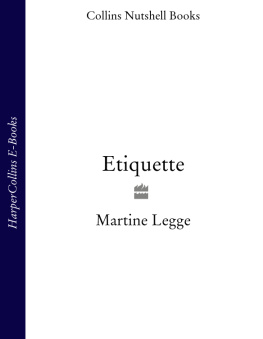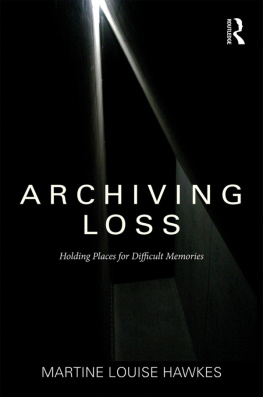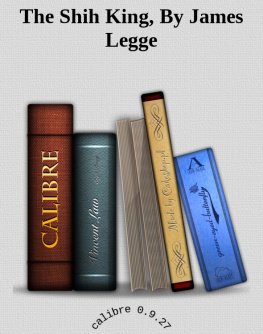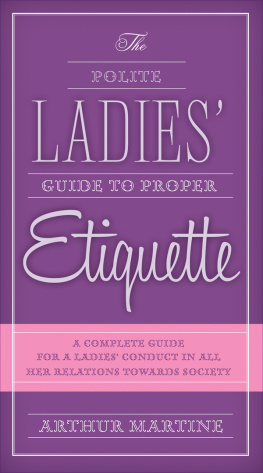First published 1964
This facsimile edition published 2009
Collins
An imprint of HarperCollins Publishers Ltd.
1 London Bridge Street
London SE1 9GF
www.harpercollins.co.uk
All rights reserved under International and Pan-American Copyright Conventions. By payment of the required fees, you have been granted the nonexclusive, nontransferable right to access and read the text of this e-book on-screen. No part of this text may be reproduced, transmitted, downloaded, decompiled, reverse engineered, or stored in or introduced into any information storage and retrieval system, in any form or by any means, whether electronic or mechanical, now known or hereinafter invented, without the express written permission of HarperCollins ebooks.
HarperCollinsPublishers has made every reasonable effort to ensure that any picture content and written content in this ebook has been included or removed in accordance with the contractual and technological constraints in operation at the time of publication.
Source ISBN: 9780007295579
Ebook Edition MAY 2012 ISBN: 9780007441440
Version: 2015-12-15
Etiquette is a means, not an end. It is a code of behaviour governing everyday activities which brings some order into relationships with other people. Etiquette (which really means good manners) will never turn you into a saint or a genius, but it will facilitate your passage through life and may enable you to achieve a position which a genius might easily fail to gain because he is a boor and antagonises others. Pleasant, helpful, amiable people who never jar or hurt others, who are considerate and peacemaking, are of great value in any society.
Manners are not always noticeable when they are good. It is when they are bad that they not only arouse anger or displeasure, but draw the attention of onlookers to all the other faults their perpetrator may possess!
Manners should always be smooth and easy. They should become part of ones personality and should not be mugged up before a party like facts before an examination, or they will appear contrived and false. A medieval Italian once said that civility becomes ponderous once it ceases to be gay.
You might think that some points of etiquette are utterly unreasonable or without any basis. Raising hats (a left-over from the days when knights had to raise their visors in order to be able to talk at all) and the use of certain expressions considered to be correct while others are, for no good reason, considered common, are two examples. Society is rather like a club. For better or for worse, if you wish to belong you must conform to the rules. You may well ask why you should conform. We live in a conformist world, however, and throughout history every group of people calling itself a society has conformed to something, from the taboos of primitive tribes to the status symbols of today. Good manners constitute a far greater status symbol than large cars and mink coats. Furthermore, they cost absolutely nothing!
Codes of manners have always preoccupied civilisations, societies and even great men. Confucius considered it rude to point. Cicero thought the only occupation for a real gentleman was the pursuit of agriculture. Erasmus had some excellent ideas about manners which included the firm belief that one must not gossip, tell unkind stories, shout or mumble. One must never be too inquisitive or indulge in self-display. One must be discreet and admit to nothing which might be an embarrassment if repeated. He was a great philosopher who was mainly concerned with deeper thoughts, but his dictums might well have been those of a Lady Hortensia Bloggs or any of those thousand other serious ladies who laid down the law during the 19th century, that age of banal refinements in the dos and donts of good behaviour.
Rules of etiquette change, of course, from generation to generation. Life changes and it would be foolish to retain customs which are redundant and do not fit in with other new ideas, but the basis of kindness and consideration for others never changes. While visiting cards are rapidly disappearing, writing thank-you letters has never ceased to be encouraged. You can see the difference between these two points of etiquette. One is ageless and the other is a custom of the moment. Good manners, basically, mean that you will appear to be equally charming whether you are feeling angelically good-tempered or diabolically out-of-sorts.
Emphasis on various points also changes from generation to generation. In a book of Elizabethan etiquette you would have been told not to wipe your mouth on your sleeve or pick your teeth with a penknife, and if your sleeves fall into the soup, to pin them up immediately. Nowadays this kind of advice is unnecessary, because for generations we have learnt to eat better, but we could all do with reminders of how to behave on the telephone.
Manners also tend to wax and wane with periods of affluence and wars. In 1692 they were so bad that a society was founded for the reformation of good manners. We are in the midst of a period today when we are picking ourselves up from the laxity of post-war behaviour; yet we are right to discard many contrived and redundant customs which do not fit in with modern life. In this book, I have tried to do two things: to give practical help for all social occasions, and to explain why certain customs are being discarded whilst others are still as important as ever.
1
WRITING LETTERS
Writing a letter is communicating with another person without the help of physical charm or the stimulus and exchange of conversation; therefore it is something which needs extra care and thought if you are to give the right impression of yourself, your education and your background. Yet, in an age of increasingly better education, few put themselves across to their best advantage on paper. This is mostly due to a careless approach. It is not so much a matter of writing with grandiloquence as of writing clearly and concisely without losing the charm of your own particular brand of personality. Gone are the stilted letters of yesterday. You can write as freely as you like, but write, do not telegraph your feelings or message. A good letter is written as you might speak, but with a little more polish and division of ideas into paragraphs.
A good letter is also dependent to a certain extent upon presentation or layout, as in a newspaper or magazine. The matter should be easy to read and attractively set out, with fair margins and space between the paragraphs. In business a letter sells, impresses and informs. (A letter of application for instance, is your personal advertisement.) In private matters a letter can give the greatest pleasure, maintaining friendships and keeping alive a web of relationships almost better than the telephone. A letter, however short, is always more courteous and more of a personal compliment than a telephone call. It gives the impression that you have taken more trouble.














